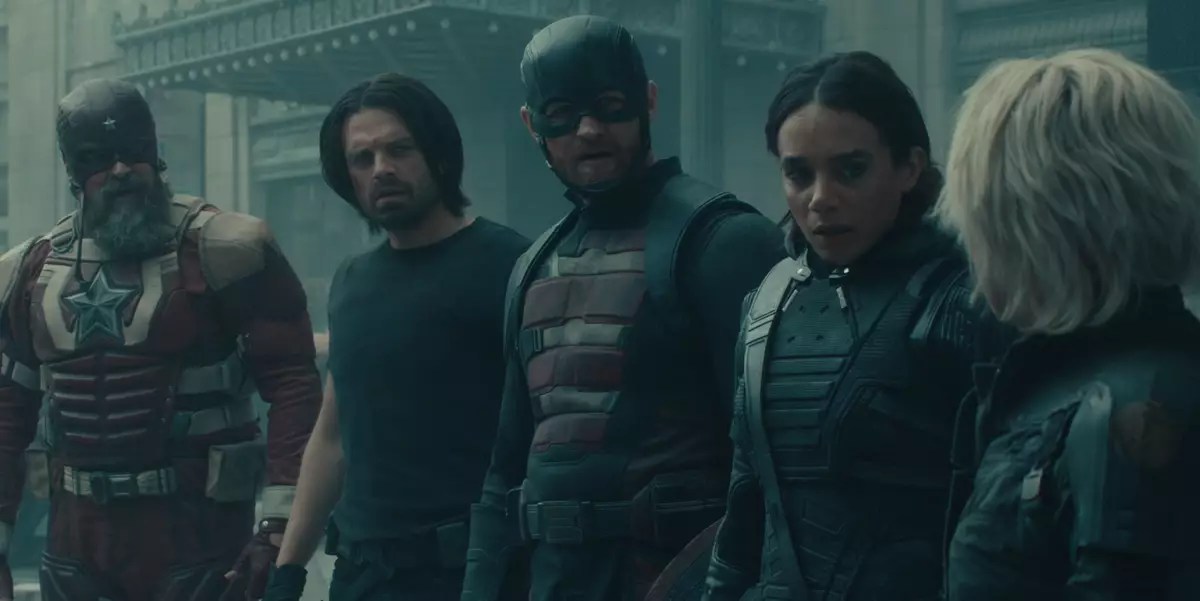Marvel’s latest venture, *Thunderbolts*, is not merely another chapter in the meticulously crafted superhero saga; it represents a bold pivot away from the traditional narratives that have defined the franchise. Instead of reuniting the beloved Avengers, the film introduces viewers to a diverse ensemble of reformed villains, ambiguities, and complexities that challenge the simplistic notions of good versus evil. This fresh approach not only invigorates the superhero genre but also allows for a deeper exploration of character and motivation, as these antiheroes navigate a perilous mission that threatens to unravel their pasts.
Meet the Misfits
At the helm of this eclectic crew is Florence Pugh’s Yelena Belova, an emotionally nuanced assassin whose past traumas shape her decisions and relationships. Joining her is Sebastian Stan as Bucky Barnes, the Winter Soldier, whose journey of redemption is both personal and global in its implications. Each character brings their unique flair to the ensemble; David Harbour’s Red Guardian is the quirky father figure, while Wyatt Russell’s U.S. Agent adds a volatile edge that amplifies the film’s tension. What’s compelling is how each character’s distinct narrative arc contributes to the overall theme of redemption and the quest for identity, making *Thunderbolts* feel like a character-driven thriller rather than just an action-packed blockbuster.
Director’s Unique Vision
Directed by Jake Schreier, known for his indie-style storytelling, *Thunderbolts* differentiates itself from the cookie-cutter Marvel formula. Pugh’s description of the film as a “badass indie, A24-feeling assassin movie” encapsulates the intriguing juxtaposition of indie aesthetics with the signature Marvel action. This combination allows for unexpected humor and intimate interactions amidst the explosive set pieces, creating a palpable tension that keeps viewers engaged. The detailed character moments stand out as particularly enlightening, allowing audiences to connect with characters often painted as villains.
Unpredictable Stakes
As the team embarks on their dangerous mission at the behest of the enigmatic CIA director, Valentina Allegra de Fontaine—played strategically by the talented Julia Louis-Dreyfus—the audience is invited to grapple with larger questions of morality, allegiance, and the cyclical nature of violence. Unlike straightforward superhero films, where good triumphs over evil with predictable ease, *Thunderbolts* presents a fascinating moral ambiguity. The characters are not merely facing an external threat, but also wrestling with their inner demons. This dual conflict enriches the narrative, transforming it into a thought-provoking commentary on the morality of heroism.
The Anticipation of Theater Experience
Currently, *Thunderbolts* is exclusively available in theaters, a decision that amplifies its appeal. In a time when many films are heading straight to streaming, the choice to prioritize the cinematic experience adds a layer of excitement and urgency to the viewing. This waiting period builds anticipation, making the film an event. With its expected transition to Disney+, there’s a sense that even home audiences will eventually get to share in this thrilling chaos—but for now, the big screen is where the magic happens.
As Marvel concludes its Phase Five with *Thunderbolts*, it’s clear that this film may redefine the framework for future superhero narratives by embracing gray areas, complex characters, and a fresh perspective on what it means to be heroic. The way forward promises to be as unpredictable as the characters themselves.


Leave a Reply